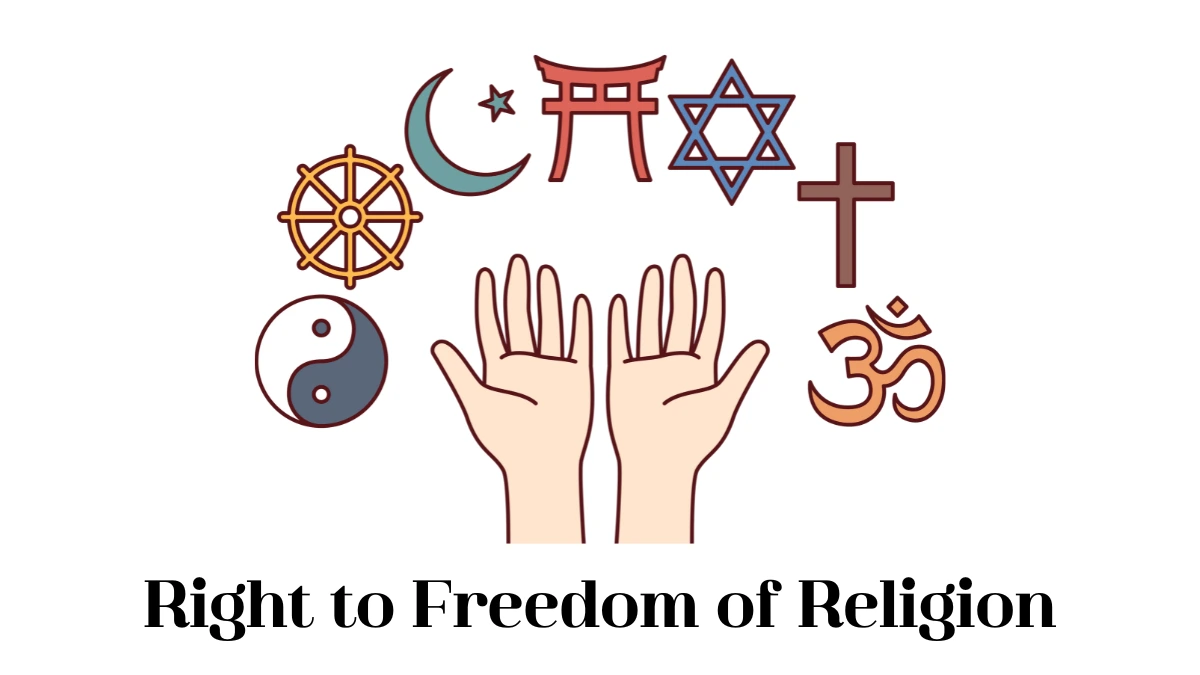Salaamun alaykum, dear readers!
There is a misconception that for a system of government to be in line with Islamic values, Quranic law must be enforced by the government. This would mean:
- Criminalizing pork consumption, gambling, missing Salat, eating during the day at Ramadan, etc.
However, the Quran makes it clear a total of eight times that there is no compulsion in the religion of Islam. Out of all the religions in this world, Islam is the most explicit and clear in granting the freedom of religion to the public.
Therefore, this is a reminder for the Muslims that no part of Islam or Sharia (which is the Arabic term for Islamic law) should be forced onto any person, whether that person is Muslim or non-Muslim, as the Quran forbids that.
- [2:256] There is no compulsion in the religion…
- [18:29] And say, “The truth is from your Lord, so whoever has willed, let them believe, and whoever has willed, let them disbelieve…”
- [10:99] And if your Lord had willed, all who are in the earth would definitely have believed, all of them together. So will you (Muhammad) compel the people until they become believers?
- [109:1-6] Say, “O you who are disbelievers, I do not worship what you worship, nor are you worshippers of what I worship. And I am not a worshipper of what you have worshipped, nor are you worshippers of what I worship. For you is your religion, and for me is my religion.“
- [78:39] That is the Day of Truth, so whoever willed has taken a return to his Lord.
- [76:30 and 73:19] Indeed, this is a reminder, who whoever willed has taken a way to his Lord.
- [88:22] You (Muhammad) are not a controller over them.
Most Sunnis believe that these verses only mean that one cannot force a non-Muslim to become Muslim. Therefore, according to Sunni thought, these verses do not apply to when a Muslim wants to become a non-Muslim, because leaving Islam is punishable by death according to a number of Hadiths.
However, while many verses in the Quran forbid forced conversions, verse 2:256 (which forbids compulsion in the religion) is completely unrelated to the topic of forcing others to convert.
- Why is that? Because verse 2:256 forbids compulsion in “the religion (al-din)”.
- The Quran says that the only religion that exists in the sight of God is Islam (verse 3:19), and no other religion. So whenever God mentions “the religion” in the Quran, it is referring to Islam alone.
- Therefore, when verse 2:256 forbids compulsion in “the religion”, it is forbidding compulsion specifically within Islam itself, rather than compulsion between Islam and other religions.
- That means all religious matters, such as punishments for adultery for example, cannot be carried out against someone without his or her voluntary consent, because verse 2:256 forbids all forms of compulsion within the religion of Islam.
Quranic Punishments
The Quran prescribes punishments for several misdeeds, such as feeding 10 needy people for violating a contracted or serious oath, or 100 lashes for adulterers and fornicators (if guilt can be proven).
Many believe that those punishments must be forced onto someone who commits those things, but that is not true.
Those who meet the requirements for a Quranic punishment must willingly consent to being punished. No person can be given a Quranic punishment against his or her will.
That is because compulsion in the religion is forbidden in verse 2:256, but if someone is forced to undergo a Quranic punishment against his or her will, then that becomes a form of religious compulsion, which the Quran forbids.
The beauty of this system is that if an innocent person is falsely accused by someone and convicted (such as for adultery/fornication), and that person is fully aware of his or her innocence, then that person can protect himself or herself from punishment by simply not consenting to it.
But if that person is truly guilty and does not consent to the punishment, then God will hold him accountable for that.
When Use of Legal Force Is Justified
What the Quran makes mandatory is defending one’s self and other people from the injustices and harms inflicted on them by other people aglatainst their will. Even if that includes fighting in self-defense or fighting to save oppressed people. This is the only excuse found in the Quran to use legal compulsion or force.
- [4:75] And why would you not fight in the way of God and the weakened ones among the men, the women, and the children who say, “Our Lord, exit us from this town of its wrongdoing people, and make for us an ally from with You, and make for us a helper from with You!”
- [42:39] And the ones who help themselves when violation befalls them.
- [30:41] Corruption has appeared in the land and the sea due to what the people’s hands have earned, for He may let them taste a part of that which they have done, so that they may return.
That means Islam only allows using legal compulsion, or the force of law, to retroactively protect yourself and other people from harm, such as theft, murder, oppression, discrimination, property damage, destruction or desecration of the environment (which is shared property thus falls under public property damage), lack of consumer protection laws, and any other kind of harms done to you against your will.
This means police should not jail a person for 20 years or give any legal penalty for not fasting in Ramadan, not paying Zakat, not doing Salat, or eating pork, or gambling, or committing adultery and fornication. Due to verse 2:256, one cannot compel any part of Islam on anyone.
But having public safety laws and regulations, which serve to protect others from the harm done to others against their will, is mandatory.
Conclusion
God wants the people to adhere to His commandments (doing Salat, Zakat, fasting, abstaining from alcohol and pork, etc.) due to fear of Him alone, not the fear of other people or fear of the government guns.
Therefore, it is not the job of the government to limit exposure to sin or temptation. It is the responsibility of you alone to maintain self-discipline and protect yourself from temptations.
If eating pork, for example, was outlawed everywhere in a country, where would be the test of devotion? Is this not interfering in God’s test? In a land where pork is completely forbidden, are people abstaining from pork because they fear God, or they fear the guns of the government?
Here is a quote from Rashad Khalifa, God Messenger of the Covenant, which sums this issue up quite nicely:
“God wants the people to be free to obey or disobey Him, follow the commandments or break them, worship Him or not, believe in Him or disbelieve in Him, drink or not. If you go in a country that says nobody can drink alcohol, now are the people abstaining from alcohol because they are following God’s commandment, or the law of the land?“


Leave a Reply